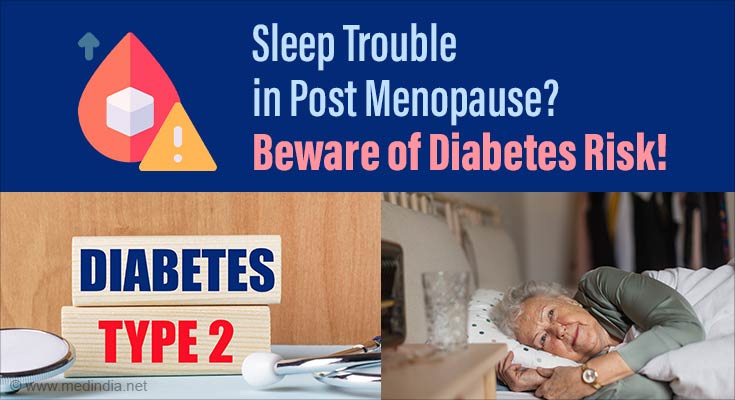Most individuals tend to sleep for seven hours at a time, but seven to nine hours is the ideal amount of sleep. Sleeping for less than six hours can raise your risk of developing associated disorders.
period. The effects were more severe in postmenopausal women, reaching up to 20.1% (
).
The women’s insulin and glucose levels were restored to normal once they resumed sleeping seven to nine hours a night.
Moreover, sleep deprivation may hasten the onset of type 2 diabetes in people with prediabetes.
From Postmenopause to Insomnia: What are the Causes?
Several factors influence insomnia in postmenopausal women including vasomotor symptoms, changing reproductive hormone levels, circadian rhythm abnormalities, mood disorders, coexistent medical conditions, and lifestyle.
Advertisement
Role of Estrogen and Progestrone:
Hormones like progesterone and estrogen which are responsible for the essential reproductive process of the female genital tract diminish in postmenopausal women and cause obstructive sleep apnea in addition to depression, stress, and sexual dysfunction.
According to studies, vasomotor hot flashes and night sweats brought on by low estrogen caused sleeplessness in postmenopausal women.
Progesterone preserves the tone of the genioglossus muscles and possesses respiratory stimulating qualities. The deficiency of this hormone in postmenopausal women increases their risk of developing sleep apnea, which exacerbates their sleep issues.
Melatonin:
Women who have gone through menopause have been shown to have lower levels of melatonin, another crucial neurohormone that also affects sleep (2✔ ✔Trusted Source
Sleep Disorders in Postmenopausal Women
Go to source
).
Leptin Regualation:
Lack of sleep can impact the control of leptin, which can cause obesity and the subsequent onset of type 2 diabetes by increasing food consumption and hunger.
Other Factors:
Poorer sleep quality can also result from other frequent sleep issues that postmenopausal women face, like obstructive sleep apnea and restless legs syndrome.
From Insomnia To Diabetes: What is the Link?
Lack of sleep can exacerbate insulin resistance in a number of ways, such as by raising cortisol levels, inflammation, and the sympathetic nervous system. However, the exact mechanism remains unclear.
Chronic sleep deprivation has been linked to an increased risk of heart disease and hypertension. These disorders may disrupt the glucose metabolism causing insulin resistance and Type 2 diabetes .
Interventions to Address Sleep Apnea in Postmenopause Women
It is best for women in their post menopause period or close to reaching menopause, to have lifestyle changes for healthier aging (3✔ ✔Trusted Source
How to Cope with Menopause Sleep Problems
Go to source
). The following tips help manage sleep issues-
-
Avoid coffee and spicy foods - Consistent bedtime routine
- No large meal before bed
- Daily physical activity
- Quit smoking
- Reduce alcohol intake
- Engage in mindfulness exercises such as meditation or deep breathing
- Cut down on screen time before bed
Apart from this exogenous melatonin is effective in increasing total sleep time and sleep efficiency, including the nocturnal awakenings associated with old age and the menopausal transition.
In summary, adequate sleep is essential for both physical and mental health which can potentially improve women’s quality of life and life expectancy.
Healthy sleep is as equally important as a balanced diet.
References :
- Chronic Insufficient Sleep in Women Impairs Insulin Sensitivity Independent of Adiposity Changes: Results of a Randomized Trial – (https://diabetesjournals.org/care/article-abstract/doi/10.2337/dc23-1156/153802)
- Sleep Disorders in Postmenopausal Women – (https://www.ncbi.nlm.nih.gov/pmc/articles/PMC4621258/)
- How to Cope with Menopause Sleep Problems – (https://health.umms.org/2022/06/21/menopause-sleep-problems/)
Source: Medindia



